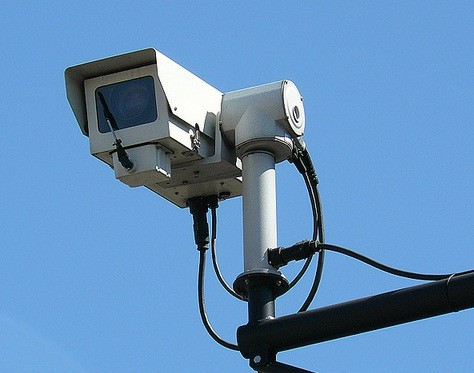Police chiefs issue CCTV safety alert amidst cuts

Councils switching off CCTV cameras in a bid to cope with government cuts are putting the public at greater risk during a time of high security alert, the National Police Chiefs' Council (NPCC) has been reported as warning. Local authorities across the country are said to be abandoning cameras in their town centres to save money, effectively leaving public areas "monitored" by dummy machines.
Crimes such as assaults and rape are often reliant on video footage, the NPCC said, with the Met Police claiming 95% of murder trials use CCTV footage as evidence. Counter-terrorism officers also say they count on the country's network of cameras for intelligence gathering.
The NPCC is due to release a report in spring next year which is expected to call for more investment and "better protection" of these services, according to the BBC. The service is not a statutory requirement of councils and detectives now fear the impact cost-cutting may have on crime reduction efforts.
Assistant chief constable Mark Bates, surveillance lead for the NPCC, told the BBC: "CCTV is hugely important, not just in terms of keeping people safe in the night time economy but also in relation to serious crime and terrorism investigations."
The UK, often described as the most surveilled country in the world, is estimated to have between 4m and 6m CCTV cameras. Figures compiled by the the British Security Industry Association say one in 70 of these are publicly owned.
Blackpool Council is one local authority that has severely cut its own CCTV monitoring service in recent years, with cutbacks in 2013 seeing cameras no longer being monitored 24-hours-a-day, seven-days-a-week.
Cllr Gillian Campbell, deputy leader of Blackpool Council, said: "Ending the CCTV monitoring service was never something that we were keen to do. We know it was a service that helped people to feel safe. However, the financial reality was that we had very little choice."
But this year the council has now heralded what it called a "new era" of CCTV, bringing some cameras back into use by drafting in volunteers. In a sign of what a future service could look like for many towns across the UK, it has seen unpaid members of the public placed in front of a bank of monitors and given access to live video feeds from across Blackpool.
While the council says its volunteers are vetted by police, the government's surveillance commissioner, Tony Porter, says he has concerns over other local authorities attempting similar schemes. He said some had not taken the proper steps to ensure those watching the public were trained or subject to rigorous background checks.
He told the BBC: "I'm seeing many cameras turned off [and] people taking control of surveillance rooms who don't have the requisite type of training to provide the service. I think the public have genuine concerns as to who is surveilling them, and if they're safe to do that."
Porter has suggested local authorities could in future face greater scrutiny over their use of CCTV, including inspections and enforcement. He has also written to council chief executives to ensure the use of camera surveillance, whether by professionals or volunteers, is run according to the official code of practice. This is, he says, after he found some "shocking" examples of local authorities not following the proper guidelines when it came to what they thought they could and could not do when monitoring the public.
At the same time, he has also issued another warning – that of emerging technologies and their impact on civil liberties. He said: "From Body-Worn Video to drones and facial recognition – technological developments are moving at the speed of light. I'm certainly not a Luddite and believe we should embrace what technology has to offer but this can not be at the expense of our civil liberties – there is a balance to be struck."
© Copyright IBTimes 2024. All rights reserved.























